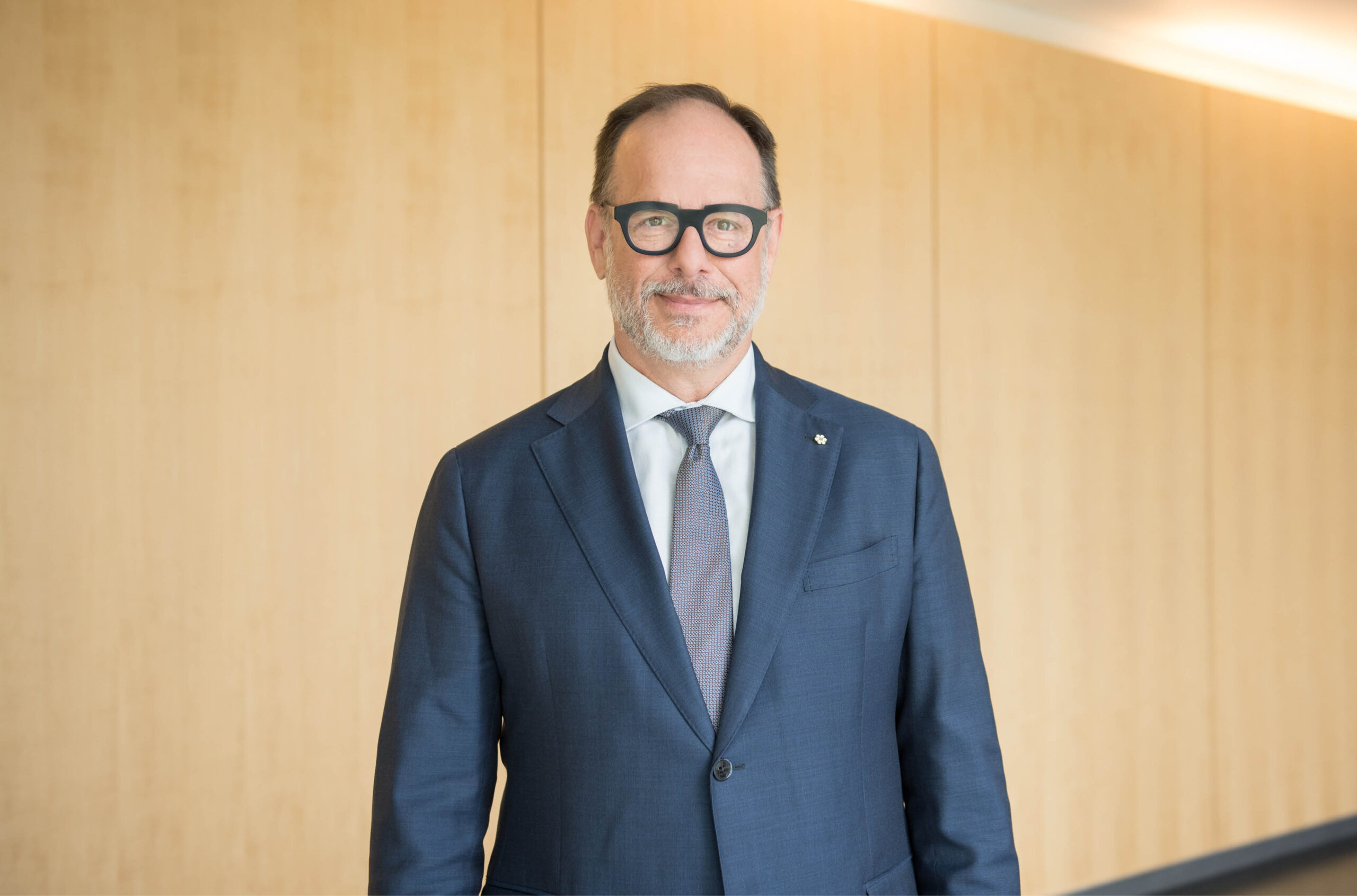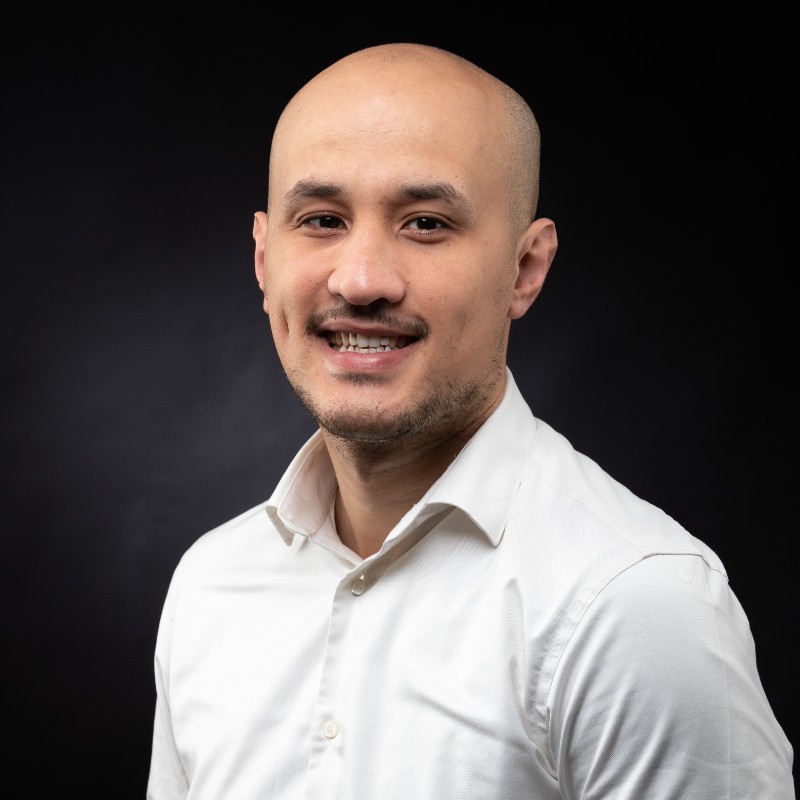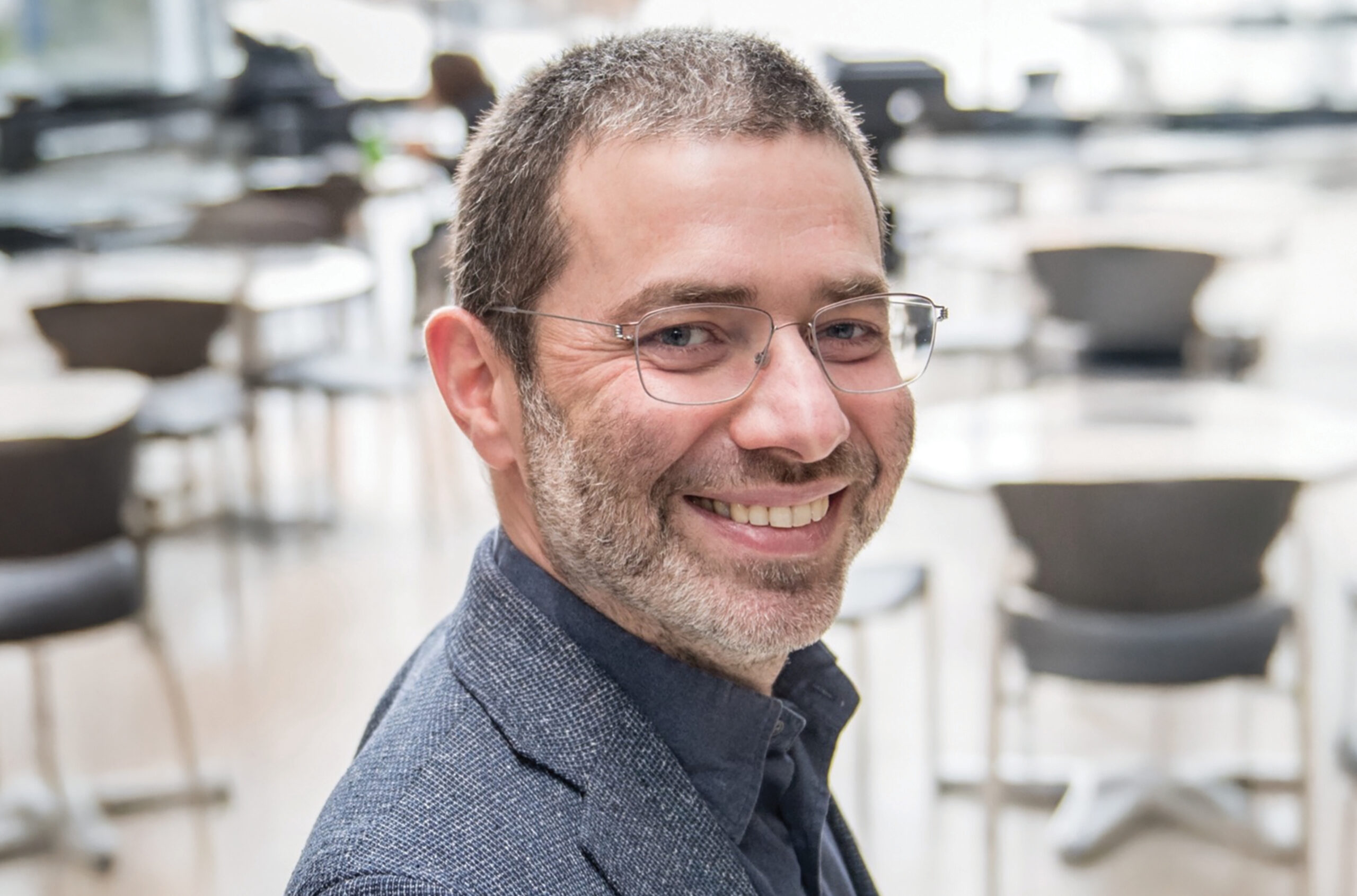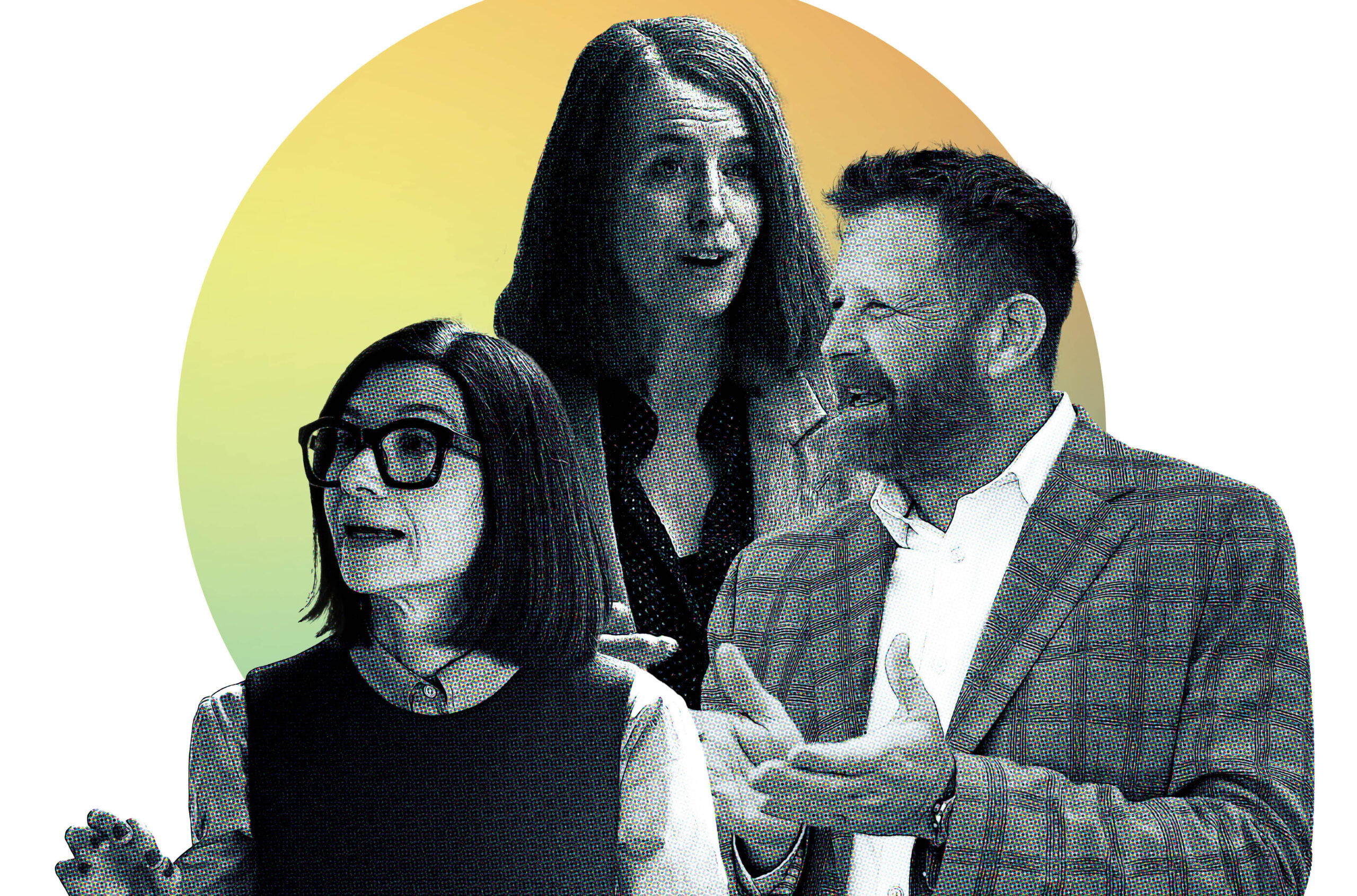Political turbulence poses threats, opportunities
Université de Montréal rector Daniel Jutras reflects on how Canadian universities are reacting to events in the U.S. and the grounds for optimism amid the turmoil.

On Saturday, four major Quebec universities published a platform that aims to position Canada as a scientific research powerhouse and a haven of academic freedom.
Part manifesto, part recruitment strategy, part funding wish list, the Polaris Platform calls for hundreds of millions of dollars in investment by federal and provincial governments — as well as philanthropic donors — to advance research in discipline such as AI, medical sciences, climate change, sustainable agriculture and democratic governance.
The platform, released by Université Laval, McGill University, Université de Montréal and Université de Sherbrooke, is part of an effort by Canadian post-secondary institutions to capitalize on a unique historical moment when the U.S. federal government is battering its own country’s universities with funding cuts and ideological attacks. According to the Associated Press, as of April 2025 the U.S. federal government had frozen more than $5 billion in federal grants to seven ivy-league universities alone.
A week before the release of the platform, University Affairs spoke to Université de Montréal rector Daniel Jutras about the current threats to academic freedom, the importance of universities as a space for open and responsible debate, and the opportunity to reposition Canada as a haven for free, inclusive and civic-minded research.
This interview has been translated from the original French.
University Affairs: You’re no doubt following closely what’s happening in the United States: cuts to research funding, ideological pressures, and so on. Are you feeling tangible effects from this political and ideological instability, at Université de Montréal or in Quebec in general?
Daniel Jutras: There has been a tangible, direct impact on funding. It’s not a huge amount — we calculated it to be about $6 million a year — but it adds up over time. There’s no doubt it’s very disruptive for the researchers who are immediately affected. There are direct financial impacts, especially for health teams that depend on funding from the [U.S.] National Institutes of Health.
Broadly speaking, the effects are likely to be strongest in projects that relate to the Trump administration’s hot-button issues: EDI, gender identity, climate change. But it extends beyond that. Health projects that, in my view, are ideologically unrelated to any of those things are still being defunded.
In my opinion, that’s the most significant direct effect. In addition to the monetary aspect, researchers are telling us that their team’s operations are being disrupted. Some have lost touch with U.S. colleagues they used to collaborate with. Travel has also become more complicated. Everyone’s thinking twice before travelling.
In short, yes, I think we’re already seeing a lot of measurable disruption. It’s affecting every research university in Canada. There are researchers in the U.S. and in other countries who have entered into discussions with Canadian universities. There is a realignment happening in the recruitment market for researchers at every level, including the most senior.
UA: You mentioned that this could create an opportunity. Do you think Canada could seize this moment to reposition itself as a haven for academic freedom for both American and international researchers?
Daniel Jutras: Yes, I’m deeply convinced of it. But we have to be realistic, not naive. It’s a complex market. Some researchers, especially the most experienced, will want to wait it out for a while. These are life-changing decisions that affect not only their own career, but also their spouse’s career and the lives of their children. Some will probably wait and see if the situation will stabilize or evolve, or if the U.S. administration will reverse certain decisions or shift its attention to other issues.
But as far as early-career researchers and highly mobile doctoral students and postdocs are concerned, we have a real opportunity. I’m not just talking about expats. Researchers in the U.S., Europe, Africa and South America are thinking about their future. Canada can position itself to recruit them.
But to do this we have to send a clear message, and we’re not quite there yet. We talk about openness, but there are also restrictions on who can enter the country, specifically with the current study-permit quotas. We’re sending mixed messages.
UA: There has been a lot of discussion about wokeness and academic freedom; these themes were regularly in the headlines. But at present, political attacks and economic pressures are bigger concerns. In your opinion, what are the real threats to academic freedom today? Those that are perhaps less visible but no less real.
Daniel Jutras: I think the biggest threats are political. We see this everywhere in the West. We’re talking about the U.S., but we could just as well talk about Hungary or Venezuela, or the rise of right-wing parties around the world.
Public conversation is all starting to sound the same. You mentioned woke ideology; the same subjects come up again and again. We hear about the “woke,” about EDI — in Florida, [former University of Michigan President] Santa Ono’s nomination as university president was denied even though he was the sole finalist for the position.
We in the West often hear political parties and commentators demonize international students and blame them for every social problem. University administrations are criticized for how they handle debate on campus. They are accused of failing to protect students from antisemitism or, to a lesser extent, from Islamophobia. Politicians are also threatening to tie research funding to ideological criteria.
These arguments vary in intensity, of course. But we also hear them in Canada. In my view, these political pressures pose a far greater risk than what is referred to as “wokeness.” I don’t particularly like that term, by the way. I find it reductive.
Progressives do exist, indeed. Some try to censor or cancel people, which I think runs against our ideals of academic freedom, but these are fringe cases and do not represent my everyday reality.
I’m more worried about the threats from players that wield financial power, especially the governments that control funding for Canadian research and education. Therein lies the real concern.
UA: It often seems as though Quebec is relatively insulated. There are some tensions, but overall, the climate seems calmer. Do you share this sentiment, and do you think it can last?
Daniel Jutras: Absolutely. In my conversations with politicians, I’ve sensed no desire to limit universities’ social or scientific role. You’re right that there are a few tense topics — about governance, for example — but discussions are very direct and authentic. When problems do arise, communication is clear in both directions.
The environment in Quebec is nothing like that of the United States. That said, we should remain cautious. Conversations can shift or turn on a dime and practices can change, undermining universities’ credibility.
An interesting fact, and University Affairs has already looked into this, is that in surveys on the credibility of universities — the institutions themselves, as opposed to individual researchers aside — Quebec always does better than rest of Canada. I think the likeliest explanation for this is the superior cost-benefit ratio. Tuition fees are much higher in Anglophone provinces, which drives students to question the value of their university education. In Quebec, where tuition is much lower, this is less of a factor.
UA: You’ve said that we must accept uncomfortable, even outlandish ideas because that’s often how real breakthroughs are made. But in a context where controversies quickly take centre stage, how can we create an environment that promotes bold ideas without compromising scientific rigor?
Daniel Jutras: It’s a very challenging balance. When I began in this position, we launched a mission in support of academic freedom. It was the right time. We published a statement, then a policy on academic freedom, which was unanimously adopted by the University Assembly.
But for these values to truly manifest, the university community must actively commit to them. I find that debate remains peaceful at Université de Montréal. I haven’t heard about conflicts in the classroom or issues with how freedom of speech is exercised on campus. We’re lucky to have a calm environment. But I’d like the debate to be livelier.
I’d like for the university community to discuss major social issues — even controversies — more vigorously and with the maximum possible freedom. That’s my role: reminding people of this and creating the right conditions for my colleagues and students to meet our responsibility to advance knowledge.
It’s also important to remember that academic freedom — the freedom to conduct research, teach and publish our results — is not exactly the same thing as freedom of speech. Academic freedom is carried out in a framework of expertise as part of the academic community. It requires a particular attitude that is at once intellectual, ethical, and informed by our duties and obligations.
It’s important to question your own ideas, be methodologically thorough, present honest results, and be able to show how you arrived at a given conclusion. These are the ingredients of responsible academic freedom, and they help create the climate you’re talking about. Expressing our views with openness and humility creates the ideal climate for advancing knowledge.
UA: A year ago, pro-Palestinian encampments put Canadian universities’ commitment to freedom of speech to the test. Université de Montréal didn’t bear the brunt, but do you think any lessons were learned?
Daniel Jutras: Undoubtedly. As you point out, our situation wasn’t particularly contentious. But I think several Canadian universities took a great deal away from the experience, especially about institutional neutrality. A number of universities are still debating the idea that administrators like myself must exercise caution in their public statements.
I suspect we may see fewer administrators taking official positions on geopolitical issues. But this hardly meets the expectations of people who called for universities to take a stance last year. This is not surprising: universities carry significant cultural capital. When they commit to a cause, it has a major effect.
In my opinion, a lot of universities’ main takeaway will be exactly that: to be more cautious. Here, we undoubtedly avoided conflict because we made the right decisions early on. We were able to establish a climate of calm conversation.
UA: There are numerous calls to reimagine universities despite the tensions and challenges. This often comes up in my interviews with researchers. Do you see signs of hope or renewal, despite everything? Any positive trends that inspire you?
Daniel Jutras: Since I started this job, we’ve lived through the pandemic and the emergence of artificial intelligence, which has already transformed teaching and research. We live in unprecedented geopolitical times. Climate change is becoming more and more noticeable. In short, there is a lot going on around us.
One of the effects of this turbulent period — I won’t go so far as to call it chaotic — is that universities are increasingly reflecting on their social responsibility. Not just in terms of teaching and research, but also service to the community.
Universities’ civic responsibility has become a central issue. This is not new, but I get the sense that the public has begun to expect much more of universities. This is reflected in the strategic plans and mission statements issued by many universities.
Geneviève O’Meara (UdeM spokesperson, present during the interview): And the effects are palpable. Last week, Sainte-Justine announced a major breakthrough: a new approach saved the life of a child with a rare disease. It blew up on social media. Everyone was saying, “We need more news like this!” That’s a good sign, and it’s also a good opportunity to explain that breakthroughs like these are made possible by fundamental research in our universities.
Daniel Jutras: Geneviève is right. Our current environment is unique, especially what’s happening in the United States with the Trump administration’s attacks on universities. It’s rare that universities are talked about so much in the public sphere.
Recently, people have asked me — not just in my professional circle but in my community more widely — “How are things at universities? What do you think of Trump? What is your responsibility in all this?”
Every conversation like this is an opportunity to remind people of the fundamental role universities play in Canadian and Quebec society. Frankly, I hadn’t seen this over the last five years. We should seize this opportunity. And I think my colleagues, administrators and professors alike, are jumping at the chance.
Featured Jobs
- Engineering - Assistant or Associate Professor (Robotics & AI)University of Alberta
- Sociology - Tenure-Track Position (Crime and Community)Brandon University
- Architecture - Assistant Professor (environmental humanities and design)McGill University
- Medicine - Associate or Full Professor Professor (Kidney Health)Université de Montréal
- Finance - Faculty PositionUniversity of Alberta








Post a comment
University Affairs moderates all comments according to the following guidelines. If approved, comments generally appear within one business day. We may republish particularly insightful remarks in our print edition or elsewhere.